The Learning Outpost: Where curiosity is king and education gets messy
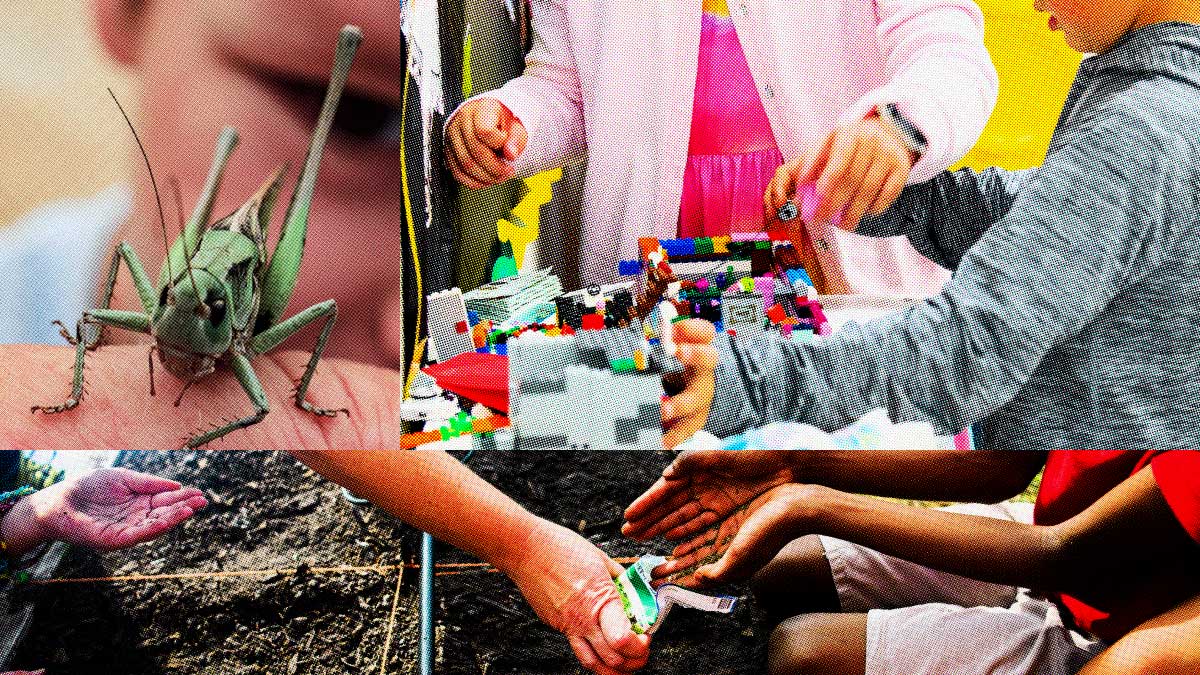
Spend any time in The Learning Outpost and you’ll quickly realize there are few more hands-on educators in Nevada than Felicia Wright, known as “Miss Felicia” to her students. Take the ketchup incident for example.
When teaching her students about first aid, rather than show slideshows and discuss it in theory, Wright “smeared ketchup” on herself, she remembers, laughing. “They love that kind of stuff.”
This is the kind of hands-on, fun work The Learning Outpost, a Las Vegas-based microschool that is just finishing its pilot year, offers its students. Wright started the school after teaching first and fourth grade for four years in public school and becoming frustrated with the one-size-fits-all constraints that didn’t allow room for students to explore different learning styles on an individual level.
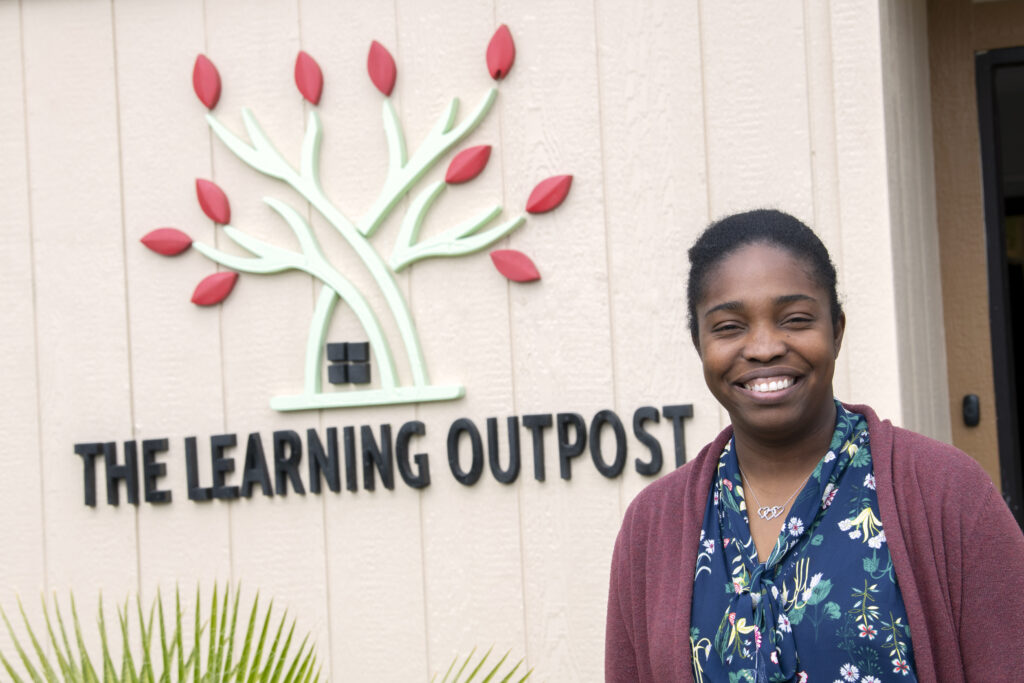
In 2018, she started experimenting with project-based learning classes at the public library for homeschooled students. Suddenly, she saw children more engaged in their work than she ever had before. This gave her an idea for a better way: start her own school, one which used project-based learning to allow students to work within their own strengths, and stoke their curiosity.
Wright borrowed from her 401K and walked around neighborhoods searching for spaces to house the school, hosting yard sales to fill up The Learning Outpost’s library herself. She started with just two students: her daughters, then aged eight and six.
Since then, The Learning Outpost has expanded to become a collaborative educational space, where students, parents, and educators can work together to design the experience that will fit their needs best.
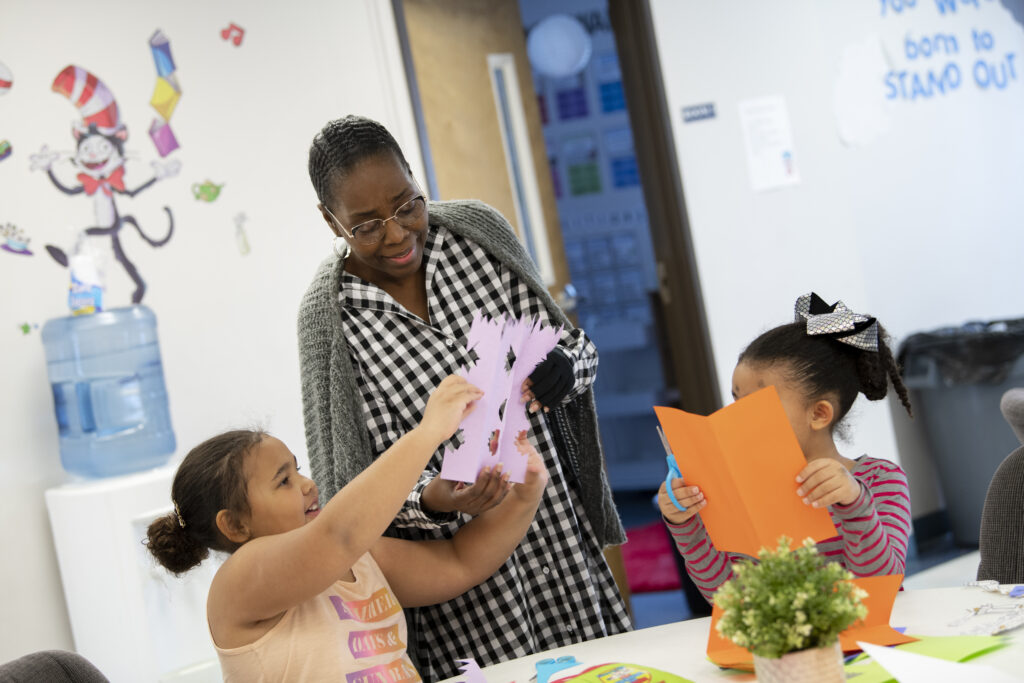
“It’s been a struggle, because I didn’t know a whole lot about business and having a brick and mortar location,” she recalls. “Those are things that you can’t really read in a book, you just have to experience, and those experiences can be painful. But I wouldn’t do it any other way.”
The Learning Outpost lets students choose the topics
The Learning Outpost combines project-based learning and real-world skills with traditional academics. In the morning, students study through projects, and in afternoons, they do a variety of topics based on their interests.
So far, this has included purifying water by making a solar still; learning Spanish; planting gardens with the Nevada 4-H club and making yogurt parfaits to learn about healthy eating; and yes, pouring ketchup on Miss Felicia to teach first aid.
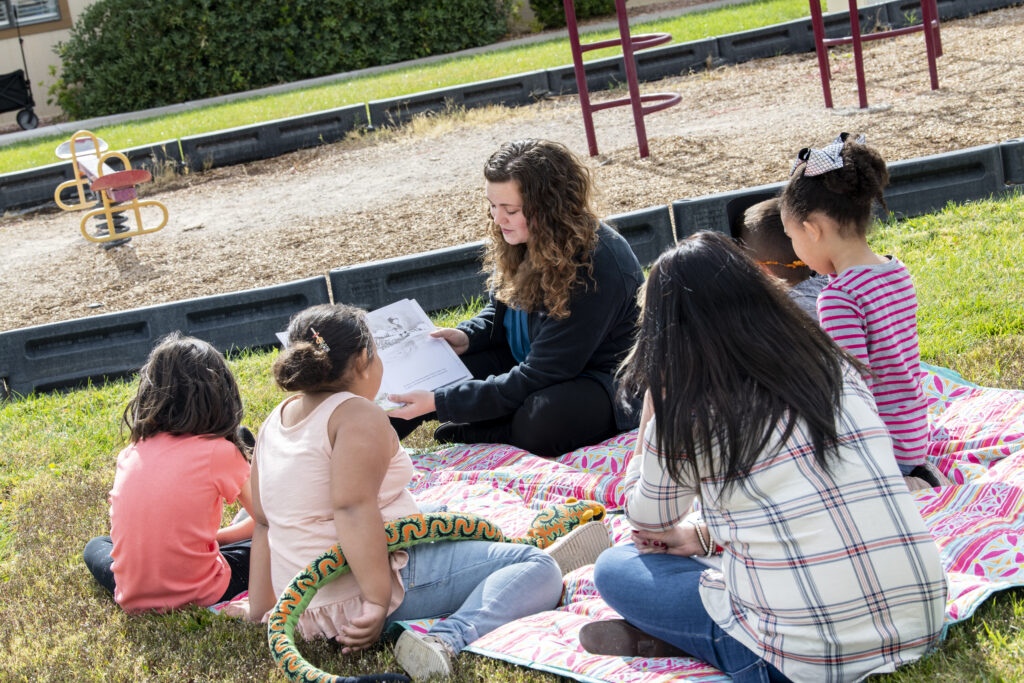
This allows students the freedom to use the educational methods that play to their unique skills and strengths. The curriculum is flexible and constantly-evolving. Wright has seen the confidence they gain in their relationships, hobbies, and other aspects of life.
“Our mission statement is to restore the love of learning in children, because I feel like in [traditional school] you don’t enjoy learning anymore,” she says. “You sit down. You do what you’re supposed to do. Then you get to go home at the end of the day.”
There are no grades at The Learning Outpost. Wright considers improved communication skills, confidence, and heightened curiosity the true marks of “success” for a student.
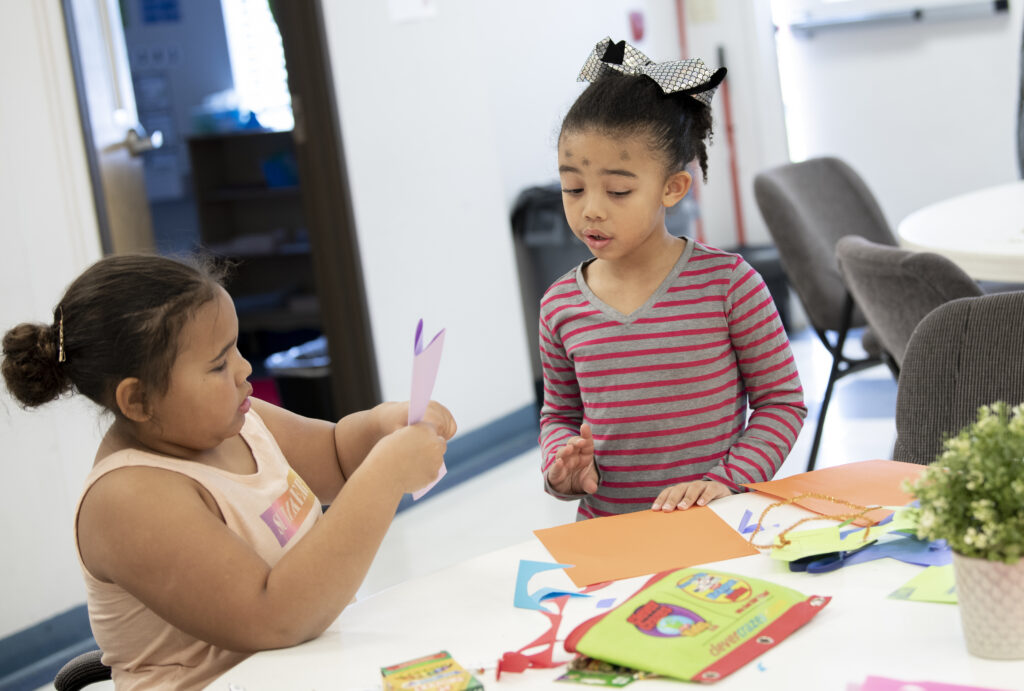
“We talk about their interests frequently,” she explains. “If we can foster those interests early, maybe that’s the path that they’re supposed to be on, and that’s the path that they’re gonna go on. I feel like a lot of kids miss that boat. They can say, ‘Oh I love this,’ but they never had the opportunity to learn about or explore it. So giving kids those opportunities is super important.”
The ultimate goal of The Learning Outpost is to produce students who are empowered to identify, vocalize, and pursue whatever interests them — setting them up to realize their full potential throughout their entire lives to come.
The Learning Outpost makes parents part of the process
Education at The Learning Outpost is individualized, which is made possible through the collaboration between students, parents, and teachers.
Curriculum “looks different for every single kid, with every single parent that comes in,” Wright describes. “I do an hour-long tour with every single parent, and we talk about what they’re looking for, what their family wants, what kind of growth they want to see. And then that really dictates how we approach learning with that student.”
Wright works with parents and students to identify their educational priorities, whether that’s traditional academics, social skills, or any other focus. This doesn’t just affect the subject matter or learning methods employed, it can also stretch as far as the attendance schedule for a child. For instance, enrollment at The Learning Outpost expanded when Wright began incorporating flex days (rather than just full time or half days), allowing families to combine The Learning Outpost with homeschooling, public school, or whatever style of education they want.
“We take lots of guidance from parents, and they let us know, ‘This is our family goal. This is what we’re looking for for our child,’” Wright says. “And then that’s the path we take.”
The one to 10 teacher to student ratio cements that sense of community. In her previous educator roles, Wright found herself with 33 students at a time, and “it was incredibly difficult. I felt like I didn’t know these kids at all. In this environment we can know all these kids, and we know all the parents, because we have such low numbers. So we create that community feel.”
It’s certainly working so far. Parents frequently volunteer at events, schedule play dates together, and take advantage of The Learning Outpost’s “open door policy.”
“We don’t stop them at the door,” Wright says. “Come on in, talk to us about what you’re wanting, what you’re seeing.”
What’s on the horizon for this Las Vegas microschool
The 2022-23 school year was The Learning Outpost’s first in operation, and there’s a lot of room for growth.
“Now I can really tweak and refine the program, which is really exciting in the second year,” says Wright.
This past year, the student body grew from four to 24. This fall, there will be an anticipated 25 students. Though The Learning Outpost currently offers kindergarten through sixth grade, Wright’s long-term hope is to offer kindergarten through 12th grade and expand onto a bigger campus.
In the meantime, Wright continues to welcome parents in for tours constantly. Although she has been advised to do group tours rather than one-on-one tours with parents to save her already-stretched time, “then it wouldn’t feel like a community anymore,” she says. “It would feel like a machine. I want parents to feel heard, because most places that they go, they do not feel heard. It’s a lot for me, but I think it’s worth it.”
Learn more about K-12 education reform.

